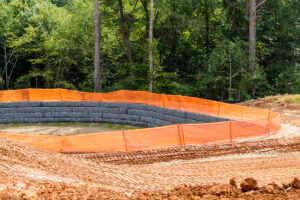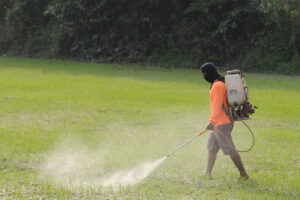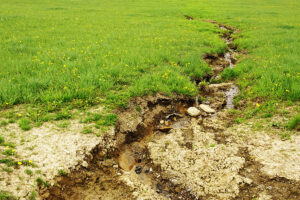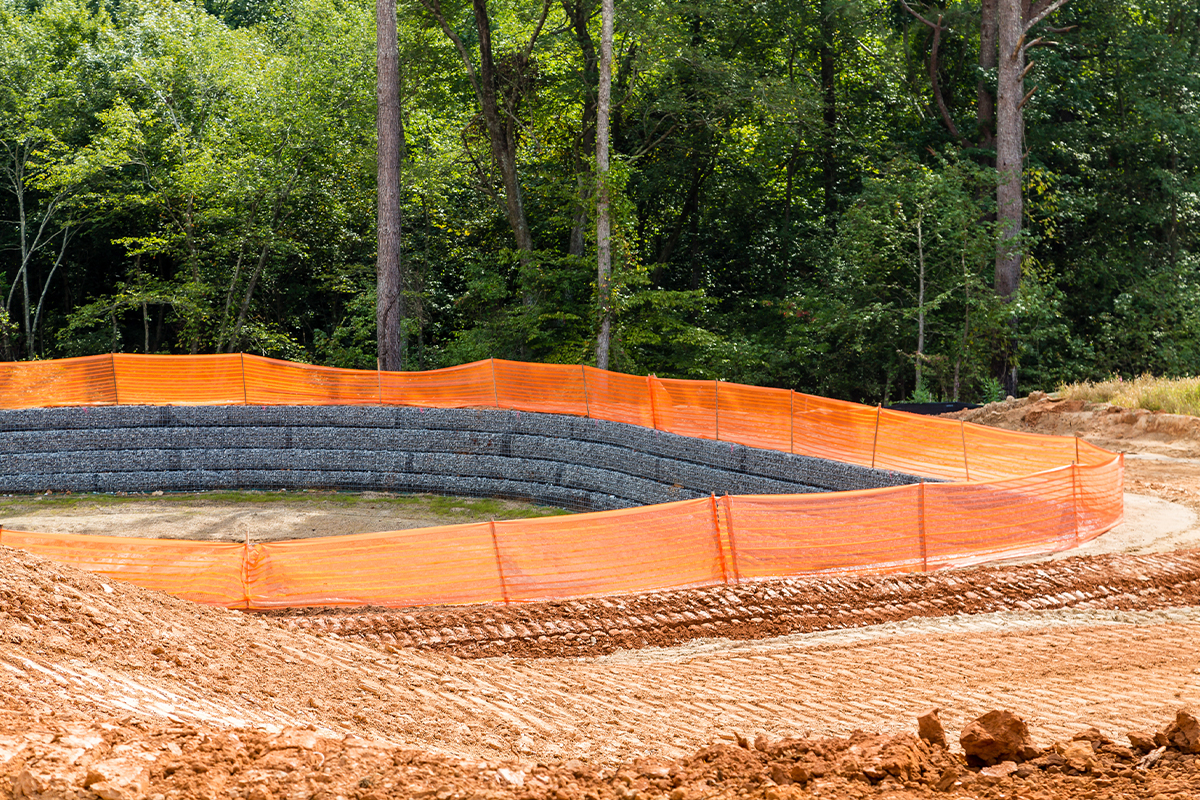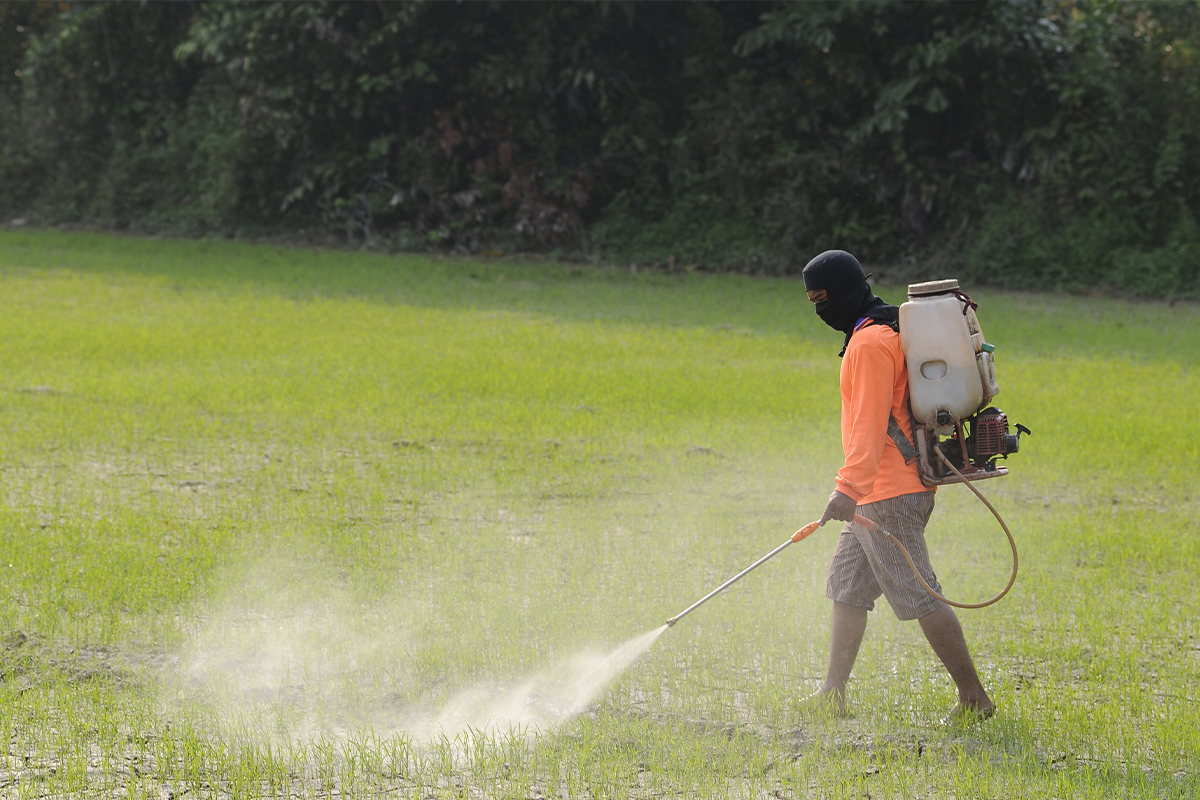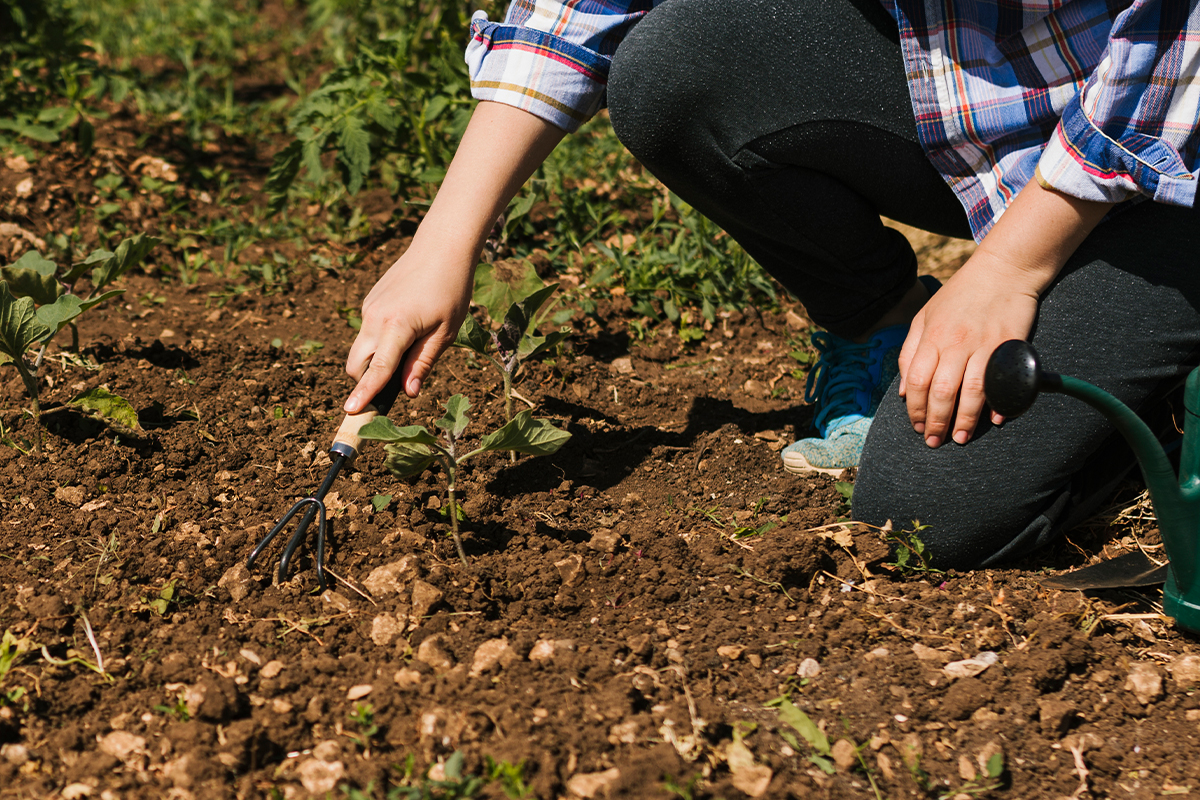Whether you own a 100-acre tree farm or are trying to maintain a small backyard patch at your private residence, you may be dealing with the complicated ordeals of soil erosion. This problem plagues property owners across the globe, and it occurs when inclement weather like rainfall, strong winds, runoff, ice melt, flooding, and more. These harsh conditions move the top layer of sediment, including gravel, topsoil, and even larger rocks, depleting the soil of much-needed nutrients and peeling the landscape away, layer by layer.
However, according to erosion control experts in West Linn, Newberg, OR, and surrounding areas, there are several things you can do to prevent this unfortunate event. In this blog post, we’ll address some common tips and tricks for preventing soil erosion so you can preserve the integrity of your land and protect your property investment.
The Impact of Soil Erosion on Your Home
1. Topsoil Erosion
If you love to plant beautiful flowers and other greenery around your commercial or residential property in Newberg, West Linn, OR, and nearby areas, you may already understand the importance of topsoil. This layer is the most fertile, and without it, your land will become completely barren.
Even if you aren’t an avid gardener, soil erosion is still catastrophic for your property. A lack of healthy vegetation makes the soil much more vulnerable to erosion, accelerating the problem and causing more significant damage over time.
2. Increased Water Pressure
Top erosion control specialists in Newberg, OR, reveal that there’s water underneath the Earth’s surface, and it benefits the population worldwide because it’s clean and safe. Normally, this water table doesn’t pose a threat to the foundation. However, when combined with erosion, it can lead to major problems.
When an excessive amount of water builds beneath your commercial or residential property, the pressure in the ground increases, which causes the surrounding area to move erratically, stressing your home. This movement leads to cracks in the foundation and puts attics at risk of flooding.
3. Reduced Property Value
Our properties are among the most valuable assets we’ll ever own. The housing market fluctuates constantly, yet there are factors related to depreciation that we can manage to maintain profitability.
Top erosion control experts in West Linn, OR, reveal that without protection, your land area will quickly lose its value and foundational integrity.
4. Long-Term Degradation
By now, we’re all aware of the negative implications of soil erosion. Together, these issues can cost a lot of money and create stress. The worst part is that these issues become far worse over time without action.
Furthermore, leading erosion control experts in West Linn, OR, reveal that foundational damage is extremely progressive and accelerates when you don’t intervene. After a significant while, your land quality may degrade to a point where it’s extremely difficult to salvage.
5 Tips and Tricks For Preventing Soil Erosion.
1. Mulch
If you plan to remove vegetation for a specific reason, one of the best ways to prevent soil erosion is to cover the topsoil. Leading erosion control specialists in West Linn, OR, reveal that if you’re clear-cutting trees and shrubbery on your property, you may be able to produce your own mulch.
Mulch protects the topsoil from erosion and covers the soil with shredded leaves and wood. It also aids in preventing soil acidification and gradually replenishes nutrients to maintain soil fertility over time.
2. Matting
Similar to mulching, this process involves covering the soil with organic materials such as mulch, straw, coconut fiber, and other wood fibers. Leading erosion control experts in Newberg, OR, reveal that the material is held in place with biodegradable spikes and netting that ensure it has plenty of time to break down and fertilize the soil. This method is frequently employed to rejuvenate the fertility and resilience of agricultural land.
3. Ground Cover
Why not take a page straight from nature’s playbook to shield topsoil from erosion? Planting trees and plants is a great way to prevent erosion for several reasons. First, any ground covering helps to lessen the impact of wind and water.
Additionally, trees, grasses, and other ground cover will develop a solid root system that weaves through the Earth, stabilizing what could otherwise be loose soil and keeping it firmly in place. Leading erosion control experts in Newberg, OR, state that because of this method’s long-term efficiency, it is one of the most popular means of preventing erosion.
4. Terracing
Sloped expanses of land can be particularly difficult to manage, especially when it comes to erosion control. Gravity actively works against you, and even if you plant vegetation or spread mulch, some of it may naturally roll downhill on its own, making it more susceptible to the ravages of wind and water flow.
According to the leading erosion control specialists in West Linn, OR, terracing or forming the slope into steps can help. The steps will impede wind or water flow over the surface and act as a catch basin for any loose soil moving downward. Planting ground cover on the terraces is an even more effective solution.
5. Retaining Walls
According to top erosion control experts in Newberg, OR, this method can be particularly useful in any situation where the terrain isn’t at a certain level. This includes terraced areas and even gentle slopes between planting beds and yards or between yards and parking pads or driveways. Retaining walls will help to keep soil where it belongs when it is at a much higher elevation than surrounding areas.
Why Choose AOS Brush and Land Clearing?
Looking for professional assistance? Our team of skilled experts at American On-Site is dedicated to offering high-quality erosion control services in Newberg, West Linn, Molalla, and surrounding areas. We employ the most up-to-date tools and strategies to provide the best outcomes for your project.
At AOS Brush & Land Clearing, we provide a variety of erosion control techniques to assist in stopping soil erosion. Some of these actions consist of the following:
1. Mulching
It covers the soil’s surface with synthetic or organic materials to prevent wind and water erosion.
2. Terracing
Level steps or platforms are created on slopes to reduce water flow and stop erosion.
3. Riprap
Big rocks or concrete blocks are typically placed along riverbanks or shorelines to stop erosion brought on by water currents.
Our dedicated team of experts takes pride in our skill set in completing projects on schedule and within budget. We work hard to provide the best for our customers in everything we do! Your project is in capable hands thanks to our expertise in erosion prevention.
Contact us at (503)554-0915 to schedule an appointment with our team today.
